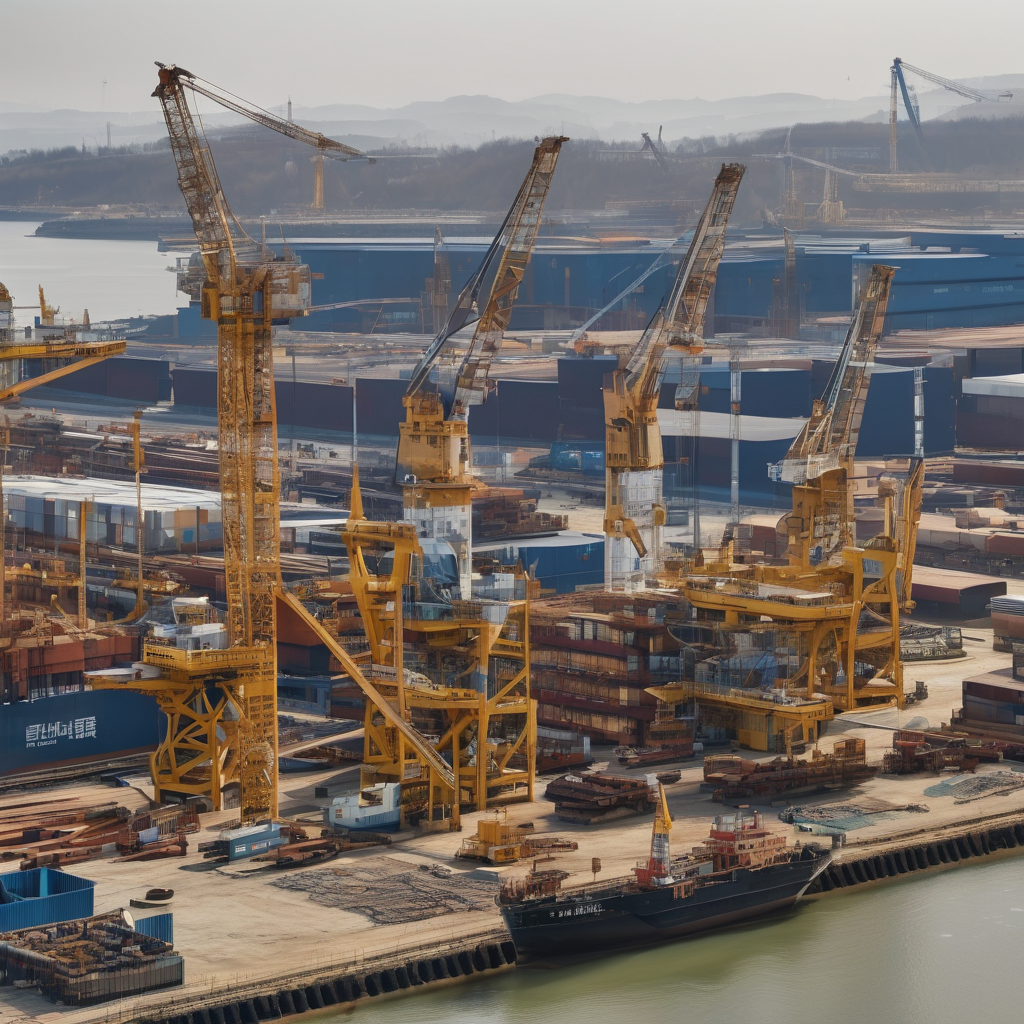China’s recent sanctions on U.S.-linked units of South Korean shipbuilder Hanwha Ocean have raised significant concerns about the future of shipbuilding cooperation between Seoul and Washington. These sanctions, announced by Beijing, threaten to disrupt crucial supplies of Chinese equipment and materials, a development that could hinder South Korea’s ambitious plans to invest $150 billion in revitalizing the U.S. shipbuilding sector. This investment is part of a broader initiative, dubbed “Make America Shipbuilding Great Again” by South Korean officials, aimed at enhancing American shipbuilding capabilities to better compete with China’s dominance in the industry.
The sanctions come as both the U.S. and China introduce additional port fees affecting each other’s vessels, further complicating an ongoing trade war between the two nations. South Korean officials, including Seok Jong-gun, the country’s Minister of Defense Procurement Program Administration, highlighted that the sanctions would inevitably impact the logistics and supply chains necessary for Philly Shipyard, which Hanwha owns. Seok pointed out the challenges of sourcing all necessary materials and components domestically within the U.S., suggesting that dependencies on imports would remain crucial despite the sanctions.
While analysts suggest that the immediate repercussions of these sanctions may not be severe, they caution that they could foreshadow more stringent actions from China that target South Korean shipbuilders collaborating with the United States. Lawmaker Yu Yong-weon estimated that Philly Shipyard could face around $60 million in losses over the next two years due to anticipated supply chain disruptions. The South Korean government views these sanctions not merely as a trade issue but as a threat to national economic security and industrial competitiveness.
In response to the sanctions, Hanwha Ocean has refrained from commenting on the estimated financial impacts but affirmed its commitment to providing exceptional maritime services and to its continued investments in the U.S. maritime sector. The company operates a shipyard in China’s Shandong province that produces essential ship components for its South Korean facility, indicating the critical interplay between these locations.
The U.S. State Department has criticized China’s sanctions as “irresponsible,” pointing to their potential to disrupt U.S.-South Korean collaboration in strengthening the U.S. shipbuilding industry. The sanctions also reflect broader geopolitical tensions, as China’s Ministry of Commerce cites alleged security risks linked to Hanwha’s operations as the justification for its actions.
Despite these challenges, there remains a strong belief among South Korean and U.S. officials in the resilience of their partnership. Efforts to solidify collaborative ties in defense and shipbuilding may ultimately bolster economic security, laying the groundwork for a more robust maritime industry—a domain in which both countries aim to excel despite external pressures. As seen in past negotiations, maintaining open dialogue and adaptability will be vital in navigating these turbulent waters and capitalizing on existing investment frameworks.
In this context, while immediate challenges loom due to geopolitical tensions, there is a hopeful perspective that strengthened commitments to cooperation could lead to enhanced security and economic stability for both nations.
